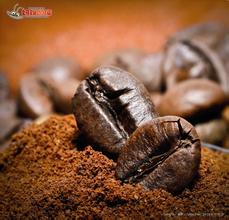Review of baking in Costa Rica-introduction to the origin of coffee beans
Review of baking in Costa Rica-introduction to the origin of coffee beans
The city of Catago was founded in 1563 and Costa Rica was colonized by Spain and placed under the jurisdiction of the Governor's Office of Guatemala. During the colonial period, under the cruel enslavement and oppression of the Spanish colonists, the Indians were almost wiped out, and there was little labor available for enslavement, so the Spaniards had to cultivate small plots of land and produce the agricultural products they needed. Costa Rica has been in a state of poverty, ignorance and isolation for a long time.
The strict management of Laminita Farm in Tarazhu production area has established a world-class reputation and is popular in European and American markets for most of the century. It can be called a world-famous coffee farm. Lamini Tower means "small gold mine". Before the Spanish colonization, the Indians used to dig gold in the present farm location, which can be described as a blessed land. Raminita produces about 1 million pounds of coffee beans a year, and after selection to remove defects (more than 70% eliminated), only 290000 pounds of high-end products are sold to the boutique market, which is not a false name. The coffee of Gai Manor is famous for its sour aromas of apple and citrus, rich milk and truffle, and delicate taste of silk, about 1200-1700 meters above sea level. In addition, Sanhe District is also a famous producing area. The Yilazhu volcano and rivers not far to the east of the capital form an excellent microclimate zone, but in recent years, the urban area has gradually extended to the suburbs, and agricultural land has been sold to developers, resulting in a sharp decline in coffee production in Sanhe area. the output is almost half of which is contracted by Starbucks, and it is not easy for the industry to buy. Aquez Grass, a well-known farm in this area, has persisted since 1857. It has a long history, bright acidity, soft acidity, nuts, flower-scented taffy, sweet and charming, which are the characteristics of coffee in this area.
Costa Rica's production is small, with an annual output of about 110000 tons, ranking seventh in Central and South America. Costa Rica is dominated by recent coffee varieties, such as Kaddura, Kaduai, New World, etc., while the ancient bourbon and Tibica are rare. There are also many varieties in the territory, the most famous is the bourbon variety Vera Saatchi, a variety of elegant flavor, Brazil has also been introduced and planted, has won a prize. In addition, Costa Rican research institutions have spared no effort to improve the mixed-race Katimo, trying to reduce the stout bean lineage and enhance the Arabica flavor of Katimo, which has been exported to Asia for trial cultivation in recent years.

Important Notice :
前街咖啡 FrontStreet Coffee has moved to new addredd:
FrontStreet Coffee Address: 315,Donghua East Road,GuangZhou
Tel:020 38364473
- Prev

What are the national characteristics of coffee production in Latin America
What are the characteristics of coffee-producing countries in Latin America in 1721 French naval officer Gabriel Mathieu de Clieu went through difficulties and obstacles to bring the first coffee sapling from Africa to the Latin American island of Martinique, which was the origin of coffee cultivation in Latin America. Because at that time, France was under the reign of the Bourbon dynasty.
- Next

Introduction to the Flavor description and Grinding scale treatment of Yellow Honey Coffee beans in the Western Valley of Costa Rica
The Flavor description of Yellow Honey Coffee beans in the Valley of Western Costa Rica Grinding scale treatment method introduces the long history of coffee cultivation in Costa Rica, but in the past 10 years, a more cutting-edge dry treatment has become a trend, collectively known as the new method of honey treatment. the use of the scraper to adjust the degree of scraping of the pulp, the output shows a sense of honey with the color from light to dark (white, yellow, red and white, yellow, red and black).
Related
- Detailed explanation of Jadeite planting Land in Panamanian Jadeite Manor introduction to the grading system of Jadeite competitive bidding, Red bid, Green bid and Rose Summer
- Story of Coffee planting in Brenka region of Costa Rica Stonehenge Manor anaerobic heavy honey treatment of flavor mouth
- What's on the barrel of Blue Mountain Coffee beans?
- Can American coffee also pull flowers? How to use hot American style to pull out a good-looking pattern?
- Can you make a cold extract with coffee beans? What is the right proportion for cold-extracted coffee formula?
- Indonesian PWN Gold Mandrine Coffee Origin Features Flavor How to Chong? Mandolin coffee is American.
- A brief introduction to the flavor characteristics of Brazilian yellow bourbon coffee beans
- What is the effect of different water quality on the flavor of cold-extracted coffee? What kind of water is best for brewing coffee?
- Why do you think of Rose Summer whenever you mention Panamanian coffee?
- Introduction to the characteristics of authentic blue mountain coffee bean producing areas? What is the CIB Coffee Authority in Jamaica?

